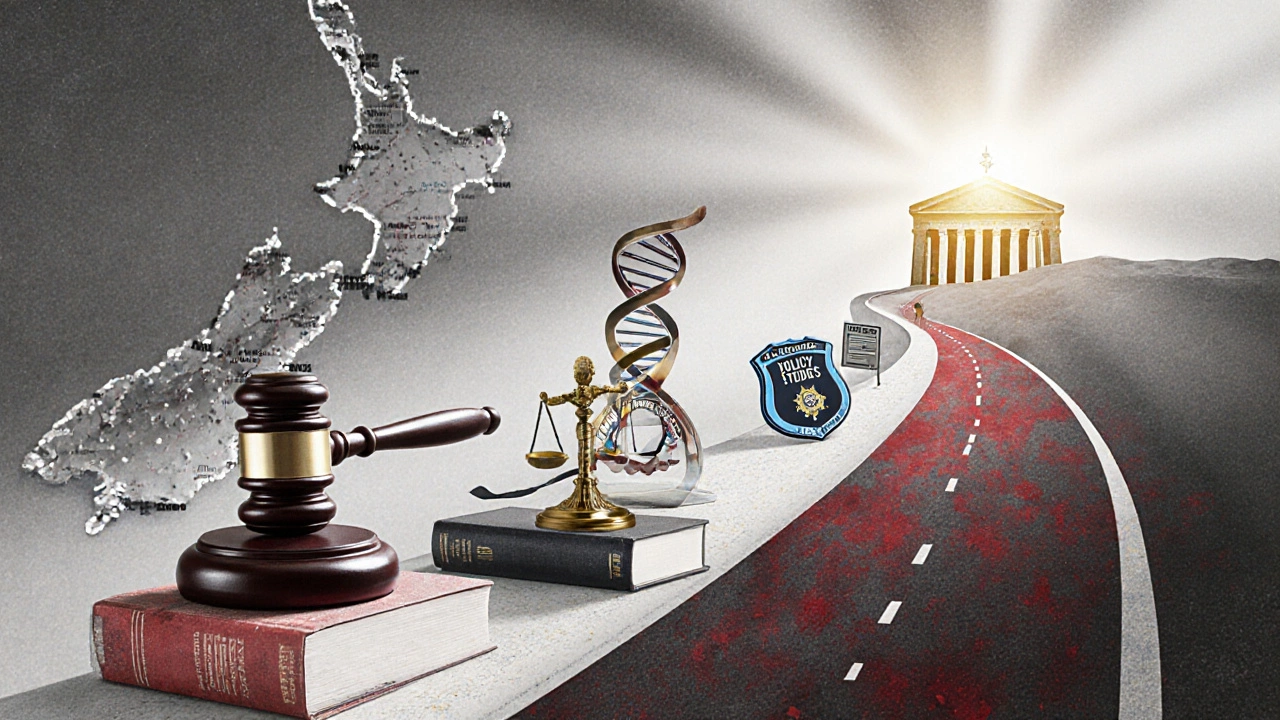Criminal Law Degree Comparison Tool
Compare criminal law degrees based on your priorities. Select your criteria to see which options best match your career goals.
Wondering which degree will set you up for a successful career in criminal law? The right credential can open doors to courtroom work, investigative roles, and policy positions. Below you’ll find a clear breakdown of the most common academic routes, how they stack up against each other, and a practical checklist to help you decide.
Understanding the Legal Career Path
Criminal law practitioners typically need a professional qualification that allows them to sit for the bar exam in their jurisdiction. In New Zealand, that means completing an accredited law degree, followed by a period of practical training. However, the journey can start with a range of undergraduate programs that build the analytical and investigative skills essential for criminal work.
Traditional Law Degrees
Bachelor of Laws (LLB) is a three‑to‑four‑year undergraduate programme that meets the New Zealand Law Society’s accreditation standards. It covers core subjects such as criminal law, evidence, and procedure, and it includes a compulsory professional skills component. Graduates are eligible to apply for the Professional Legal Studies Course (PLSC) and, ultimately, the bar exam.
The LLB remains the most common pathway for students who want to become barristers or solicitors. Many universities also offer joint honours options, letting you pair law with criminology, psychology, or sociology for a broader perspective.
Juris Doctor (JD) for International Students
Juris Doctor (JD) is a postgraduate degree modeled on the U.S. system. In New Zealand, a few institutions accept a JD as an alternative route to bar eligibility, provided the programme is accredited. The JD usually lasts two years and is geared toward students who already hold a bachelor’s degree in another field.
Because the JD curriculum often emphasizes comparative law and legal research, it can be a good fit for candidates aiming for international criminal tribunals or cross‑border investigations.

Non‑Law Degrees That Feed Criminal Law
While an LLB or JD is essential for courtroom practice, other degrees can position you for investigative, policy, or support roles within the criminal justice system.
- Criminology focuses on the causes of crime, victimology, and correctional theory. Graduates often find roles as policy analysts, crime researchers, or probation officers.
- Police Studies blends law, ethics, and operational tactics. It prepares students for entry‑level policing positions, forensic liaison, or community outreach.
- Forensic Science teaches evidence collection, DNA analysis, and courtroom testimony. Forensic scientists work closely with criminal lawyers to build technical cases.
These programmes often offer elective modules in criminal law, giving you a legal grounding without the full bar‑qualification requirement.
Criteria to Pick the Right Degree
When comparing options, weigh the following factors:
- Accreditation: Only accredited law programmes count toward bar eligibility in NZ.
- Curriculum focus: Look for strong criminal law, evidence, and procedure modules.
- Practical experience: Internships, moot courts, and clinic work are invaluable.
- Entry requirements: Some programmes demand a high GPA or specific prerequisites.
- Cost and duration: Consider tuition fees, scholarships, and the time to completion.
Step‑by‑Step Roadmap to Your Degree
- Identify your career goal (barrister, policy analyst, forensic consultant).
- Research accredited LLB and JD programmes in New Zealand and abroad.
- Check whether the programme offers Legal Internships or partnerships with local law firms.
- Compare tuition, scholarship opportunities, and graduate employment rates.
- Apply to at least three programmes that meet your criteria.
- If you choose a non‑law degree, plan a post‑graduate conversion course (e.g., Graduate Diploma in Law) to keep the bar pathway open.
- Complete the Professional Legal Studies Course and register for the Bar Exam after graduation.
Following this sequence keeps your options flexible while ensuring you meet the legal requirements for criminal practice.

Quick Checklist
- Accredited LLB or JD? ✅
- Core criminal law modules? ✅
- Hands‑on experience (internships, moot court)? ✅
- Scholarship or funding plan? ✅
- Post‑graduation path to the bar (PLSC, Bar Exam)? ✅
Comparison of Popular Degrees
| Degree | Typical Duration | Bar Eligibility | Primary Focus | Average Starting Salary (NZD) |
|---|---|---|---|---|
| LLB | 3-4 years | Yes - after PLSC | Comprehensive law, strong criminal component | 55,000 |
| JD | 2 years (post‑bachelor) | Yes - if accredited | Advanced legal research, comparative law | 60,000 |
| Criminology (BA/BS) | 3 years | No - requires conversion | Theory of crime, policy, victimology | 48,000 |
Frequently Asked Questions
Do I need a law degree to work as a criminal lawyer in New Zealand?
Yes. To represent clients in court you must hold an accredited LLB or JD, complete the Professional Legal Studies Course, and pass the Bar Exam.
Can a criminology graduate become a barrister?
Not directly. You would need to complete a graduate‑level conversion like a Graduate Diploma in Law before you can sit the PLSC and the bar.
Is the JD more expensive than an LLB?
Typically, yes. Because the JD is a postgraduate programme, tuition fees are higher per year, but the overall duration may be shorter if you already hold a bachelor’s degree.
What internships should I look for while studying?
Aim for placements with criminal defence firms, the Crown Prosecutor’s Office, or legal clinics that handle criminal matters. Real‑world exposure to case files and court appearances is priceless.
Are there scholarships specifically for criminal law students?
Several law schools offer awards named after notable criminal lawyers or judges. Check each university’s law faculty page and also look at the New Zealand Law Society’s scholarship listings.
If you aim for a criminal law degree that leads straight to courtroom practice, the LLB remains the safest bet. However, exploring related fields like criminology or forensic science can diversify your skill set and open niche career paths. Use the checklist, compare the programmes, and start gathering internship experience early - that’s the formula for a solid start in criminal law.
